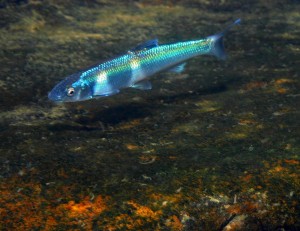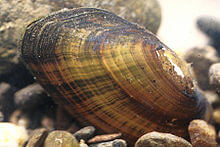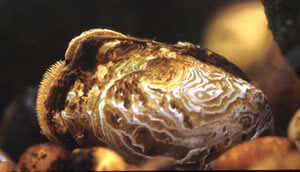Lake Nantahala, North Carolina boasts rare salmon, bountiful trout, and a variety of other fish to keep your hooks heavy and your boats full. But our shores are also a refuge for a handful of federally protected fins. Next time you trek down from your mountain cabin, take a gander at our own endangered species.
Spotfin Chub
The spotfin chub or ‘turquoise shiner’ is a ray-finned fish exclusively found in Tennessee rivers and the Nantahala region. They thrive in Lake Nantahala because of its crystal clear waters, which support their natural habitat of lake-bottom boulders in clean lakes and streams. You can find this fish most frequently hidden in rock crevices between May and August. Dams, sedimentation, and loss of habitat are the leading contributors to the decline in the spotfin chub population. The state is working to relocate and breed these creatures with a goal of redistributing them to their native regions.
Appalachian Elktoe Mussel
This mollusk may seem simple; in fact, it’s often mistaken for a rock or piece of gravel on the lakebed. But far from harming the mussel, its rocklike appearance allows it to camouflage itself in a habitat that offers a shallow stream of cool, clear water and plenty of passing snacks. There is still plenty to learn about this mussel; Appalachian Elktoe are easily damaged, which limits scientific study. Take care if you discover one of these creatures while splashing around the lake.
Little-wing Pearlymussel
This small, incredibly rare mussel is one of our winter-breeding wildlife. Like our friend the Appalachian Elktoe, the Little-wing Pearlymussel inhabits high, clear streams. Unlike its neighbor, this mollusk is more often found beneath rocks instead of camouflaged by them. This tiny creature has suffered poor water quality and insufficient habitats, threatening the population of this once prevalent species.
The beautiful Nantahala mountains are home to more than just nature lovers. These 3 endangered species diversify our ecosystem and enrich our shores. Now it’s up to us to pay it forward and keep these critters safe in the water.





Speak Your Mind